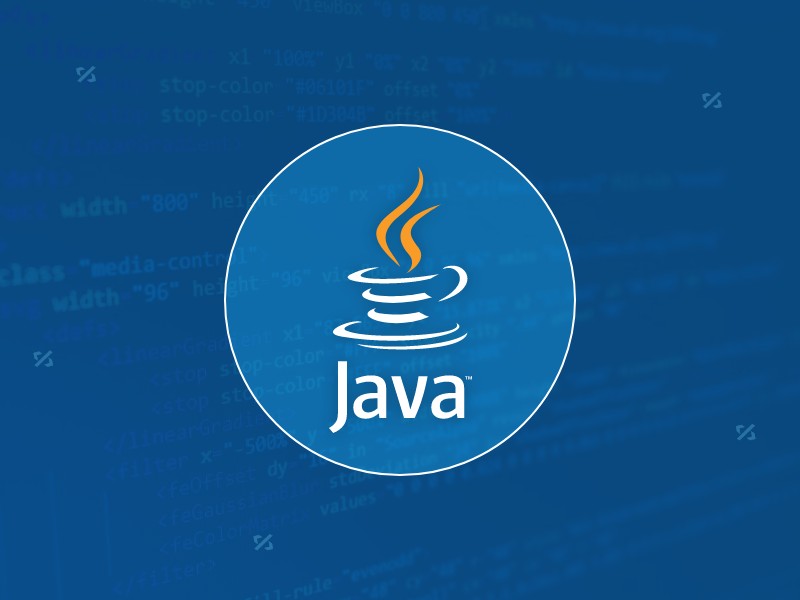Generics in Java solve the problem of type safety and eliminate runtime ClassCastExceptions by enforcing compile-time type checks. Before generics, collections could hold any object type, forcing developers to manually cast objects when retrieving them, which could lead to runtime errors. Generics allow you to specify the type of objects a collection can hold, ensuring only compatible types are added and removing the need for explicit casting. 1. Generics improve code quality by providing type safety, eliminating casting, and enabling code reuse. 2. They are useful when working with collections, building reusable libraries, or enforcing type constraints. 3. Examples include using ArrayList

Generics in Java are a way to make your code more flexible and type-safe by allowing classes, interfaces, and methods to operate on objects of various types while providing compile-time type checking. They were introduced in Java 5 to help reduce bugs and eliminate the need for explicit type casting.

What problem do generics solve?
Before generics, if you wanted to create a collection like an ArrayList, it could hold any type of object:

ArrayList list = new ArrayList();
list.add("hello");
list.add(123); // this is allowedBut when retrieving elements, you'd have to cast them back to the expected type:
String item = (String) list.get(1); // runtime error here
This can cause ClassCastException at runtime. Generics solve this by letting you specify what kind of objects the collection should hold:

ArrayList<String> list = new ArrayList<>();
list.add("hello");
// list.add(123); // compile-time errorNow, the compiler ensures that only strings can be added, so there's no need for casting or worrying about wrong types slipping in.
How do generics improve code quality?
Using generics leads to cleaner and safer code in a few key ways:
- Type safety: You catch type mismatches during compilation instead of at runtime.
- No need for casting: When you retrieve items from a generic collection, they're already the correct type.
- Code reuse: You can write general-purpose classes and methods that work with different data types without duplicating logic.
For example, a simple generic method to print any array might look like this:
public static <T> void printArray(T[] array) {
for (T element : array) {
System.out.println(element);
}
}You can call this method with an array of String, Integer, or any other object type — and it just works.
When should you use generics?
You’ll typically want to use generics in situations where:
- You’re working with collections (like
List<t></t>,Map<k></k>) - You're building reusable utility classes or libraries
- You want to enforce type constraints across related classes or methods
A common real-world example is using HashMap<string user></string> to store user data keyed by username — this avoids mixing up keys and values of different types.
Some tips when using generics:
- Use meaningful type parameter names, like
Tfor type,KandVfor key/value. - Be aware of type erasure — Java removes generic type information at runtime.
- Avoid raw types (e.g.,
Listinstead ofList<string></string>) unless absolutely necessary.
Basically, generics give you more control over types without sacrificing flexibility. They help prevent errors early and make your code easier to understand and maintain. Not too complicated, but definitely one of those features you’ll miss if you don’t use them.
The above is the detailed content of What are generics in Java and why use them?. For more information, please follow other related articles on the PHP Chinese website!

Hot AI Tools

Undress AI Tool
Undress images for free

Undresser.AI Undress
AI-powered app for creating realistic nude photos

AI Clothes Remover
Online AI tool for removing clothes from photos.

Clothoff.io
AI clothes remover

Video Face Swap
Swap faces in any video effortlessly with our completely free AI face swap tool!

Hot Article

Hot Tools

Notepad++7.3.1
Easy-to-use and free code editor

SublimeText3 Chinese version
Chinese version, very easy to use

Zend Studio 13.0.1
Powerful PHP integrated development environment

Dreamweaver CS6
Visual web development tools

SublimeText3 Mac version
God-level code editing software (SublimeText3)

Hot Topics
 Difference between HashMap and Hashtable?
Jun 24, 2025 pm 09:41 PM
Difference between HashMap and Hashtable?
Jun 24, 2025 pm 09:41 PM
The difference between HashMap and Hashtable is mainly reflected in thread safety, null value support and performance. 1. In terms of thread safety, Hashtable is thread-safe, and its methods are mostly synchronous methods, while HashMap does not perform synchronization processing, which is not thread-safe; 2. In terms of null value support, HashMap allows one null key and multiple null values, while Hashtable does not allow null keys or values, otherwise a NullPointerException will be thrown; 3. In terms of performance, HashMap is more efficient because there is no synchronization mechanism, and Hashtable has a low locking performance for each operation. It is recommended to use ConcurrentHashMap instead.
 Why do we need wrapper classes?
Jun 28, 2025 am 01:01 AM
Why do we need wrapper classes?
Jun 28, 2025 am 01:01 AM
Java uses wrapper classes because basic data types cannot directly participate in object-oriented operations, and object forms are often required in actual needs; 1. Collection classes can only store objects, such as Lists use automatic boxing to store numerical values; 2. Generics do not support basic types, and packaging classes must be used as type parameters; 3. Packaging classes can represent null values ??to distinguish unset or missing data; 4. Packaging classes provide practical methods such as string conversion to facilitate data parsing and processing, so in scenarios where these characteristics are needed, packaging classes are indispensable.
 What are static methods in interfaces?
Jun 24, 2025 pm 10:57 PM
What are static methods in interfaces?
Jun 24, 2025 pm 10:57 PM
StaticmethodsininterfaceswereintroducedinJava8toallowutilityfunctionswithintheinterfaceitself.BeforeJava8,suchfunctionsrequiredseparatehelperclasses,leadingtodisorganizedcode.Now,staticmethodsprovidethreekeybenefits:1)theyenableutilitymethodsdirectly
 How does JIT compiler optimize code?
Jun 24, 2025 pm 10:45 PM
How does JIT compiler optimize code?
Jun 24, 2025 pm 10:45 PM
The JIT compiler optimizes code through four methods: method inline, hot spot detection and compilation, type speculation and devirtualization, and redundant operation elimination. 1. Method inline reduces call overhead and inserts frequently called small methods directly into the call; 2. Hot spot detection and high-frequency code execution and centrally optimize it to save resources; 3. Type speculation collects runtime type information to achieve devirtualization calls, improving efficiency; 4. Redundant operations eliminate useless calculations and inspections based on operational data deletion, enhancing performance.
 What is an instance initializer block?
Jun 25, 2025 pm 12:21 PM
What is an instance initializer block?
Jun 25, 2025 pm 12:21 PM
Instance initialization blocks are used in Java to run initialization logic when creating objects, which are executed before the constructor. It is suitable for scenarios where multiple constructors share initialization code, complex field initialization, or anonymous class initialization scenarios. Unlike static initialization blocks, it is executed every time it is instantiated, while static initialization blocks only run once when the class is loaded.
 What is the `final` keyword for variables?
Jun 24, 2025 pm 07:29 PM
What is the `final` keyword for variables?
Jun 24, 2025 pm 07:29 PM
InJava,thefinalkeywordpreventsavariable’svaluefrombeingchangedafterassignment,butitsbehaviordiffersforprimitivesandobjectreferences.Forprimitivevariables,finalmakesthevalueconstant,asinfinalintMAX_SPEED=100;wherereassignmentcausesanerror.Forobjectref
 What is the Factory pattern?
Jun 24, 2025 pm 11:29 PM
What is the Factory pattern?
Jun 24, 2025 pm 11:29 PM
Factory mode is used to encapsulate object creation logic, making the code more flexible, easy to maintain, and loosely coupled. The core answer is: by centrally managing object creation logic, hiding implementation details, and supporting the creation of multiple related objects. The specific description is as follows: the factory mode handes object creation to a special factory class or method for processing, avoiding the use of newClass() directly; it is suitable for scenarios where multiple types of related objects are created, creation logic may change, and implementation details need to be hidden; for example, in the payment processor, Stripe, PayPal and other instances are created through factories; its implementation includes the object returned by the factory class based on input parameters, and all objects realize a common interface; common variants include simple factories, factory methods and abstract factories, which are suitable for different complexities.
 What is type casting?
Jun 24, 2025 pm 11:09 PM
What is type casting?
Jun 24, 2025 pm 11:09 PM
There are two types of conversion: implicit and explicit. 1. Implicit conversion occurs automatically, such as converting int to double; 2. Explicit conversion requires manual operation, such as using (int)myDouble. A case where type conversion is required includes processing user input, mathematical operations, or passing different types of values ??between functions. Issues that need to be noted are: turning floating-point numbers into integers will truncate the fractional part, turning large types into small types may lead to data loss, and some languages ??do not allow direct conversion of specific types. A proper understanding of language conversion rules helps avoid errors.






